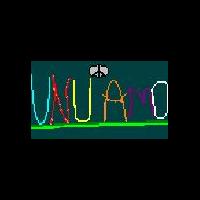Поруке: 40
Језик: English
Miland (Погледати профил) 23. октобар 2009. 00.34.04
Greyshades (Погледати профил) 23. октобар 2009. 01.30.59
Pli
 lu:
lu: e
e a
a Vilius (Погледати профил) 23. октобар 2009. 09.43.53
Greyshades:Personally, "Ĉu vi volas manĝi plu?" looks and seems a little better than "Ĉu vi volas manĝi pli?" Both would be understood in a very similiar way, so I suppose it really just matters on opinion. They I look at it...I think "Ĉu vi volas manĝi plu?" would be more like "Do you want to keep on eating?" and with "pli" it would be "Do you want to eat more (food)?". Am I wrong?
Plilu:
e
a
mnlg (Погледати профил) 23. октобар 2009. 10.04.52
ceigered (Погледати профил) 23. октобар 2009. 11.06.51
Vilius:I concur. 'pli' kinda has that general meaning of 'more', be it in a comparative or adverbial use, where as 'plu' feels like it's referring to the continuation of an action or state.Greyshades:Personally, "Ĉu vi volas manĝi plu?" looks and seems a little better than "Ĉu vi volas manĝi pli?" Both would be understood in a very similiar way, so I suppose it really just matters on opinion. They I look at it...I think "Ĉu vi volas manĝi plu?" would be more like "Do you want to keep on eating?" and with "pli" it would be "Do you want to eat more (food)?". Am I wrong?
Plilu:
e
a
Effectively, plu to me seems to be insinuating only 'more' of an action while pli seems to be insinuating more of any other part of the sentence. But ultimately I don't see it as being much of a problem whichever one you say in this case, as like many other features of Esperanto, despite the similarities in plu and plis meanings, it's all designed to be fairly easy to understand even if you do mix things up a bit.
Miland (Погледати профил) 23. октобар 2009. 13.14.29
Vilius:I think "Ĉu vi volas manĝi plu?" would be more like "Do you want to keep on eating?" and with "pli" it would be "Do you want to eat more (food)?". Am I wrong?No, in my view you're not wrong. In PMEG (first box, ninth example) we have pli used idiomatically for an object (knowledge about something under discussion). The previous example in the box has an example of pli da.
erinja (Погледати профил) 23. октобар 2009. 14.05.06
Miland:For translating 'more' in the sense of quantity, we already have plu."Plu" absolutely does not mean quantity. "Pli" is for quantity. "Plu" is for time.
PMEG on pli and plu, my translation:
Plu and pli can sometimes be similar, but on a basic level, there is a big difference. Plu is a temporal (and locative) word. Pli shows grade, comparison. Pli can show time only if there is another temporal word present or if a temporal meaning is understood through context:
* Li rakontis plu. = He continued his telling.
* Li rakontis pli. = He told more things.
*Li ne vivos plu. = He won't live anymore.
*Mi pensas, ke ĝi estos konstruata pli [longe] ol tri jarojn.[FE.25] ("I think that it will be in construction for more than three years") Plu is not possible here, because it is followed by use of "ol", which requires pli or a similar comparative word.
-----
Back to me. Therefore "manĝi plu" = keep on eating. If I ask you if you want to "manĝi plu", I am asking if you want to keep eating. In my mind, I am asking if you want to continue eating the food that you already have. If I ask you if you want to "
manĝi pli", I am asking if you want to eat a greater quantity; whether you want me to give you more food, in addition to what you already have.
gyrus (Погледати профил) 23. октобар 2009. 14.10.43
mnlg (Погледати профил) 23. октобар 2009. 14.22.25
'manĝado' is therefore an action of eating as occurred - or imagined - to have happened during a given time (not necessarily a long time), or in a given place, whereas 'manĝo' is an ideal, generic meal, devoid of particular connotations of time or space.
Thus, I would say that "manĝadi" could be roughly translated as "to have a meal", "to perform the act of eating", while "manĝi" is "to eat".
This could be enough to convey a meaning of continuity, however, to make it clearer you can use 'daŭre', 'kontinue', 'senĉese', 'seninterrompe', 'senpaŭze', 'senhalte', etc.
See also this thread.
gyrus (Погледати профил) 23. октобар 2009. 17.10.22
mnlg:In my experience, -ad- is similar to -aĵ-; where -aĵ- transforms an abstract, ideal concept into a concrete occurrance, -ad- transforms it into a concrete action, an action that has occupied time or possibly space.-ad- used with a noun represents the action of it, but it's listed otherwise as "continual", e.g. "ade manĝi" is, I think, "to eat continually". That's why I wasn't sure.
'manĝado' is therefore an action of eating as occurred - or imagined - to have happened during a given time (not necessarily a long time), or in a given place, whereas 'manĝo' is an ideal, generic meal, devoid of particular connotations of time or space.
Thus, I would say that "manĝadi" could be roughly translated as "to have a meal", "to perform the act of eating", while "manĝi" is "to eat".
This could be enough to convey a meaning of continuity, however, to make it clearer you can use 'daŭre', 'kontinue', 'senĉese', 'seninterrompe', 'senpaŭze', 'senhalte', etc.
See also this thread.






